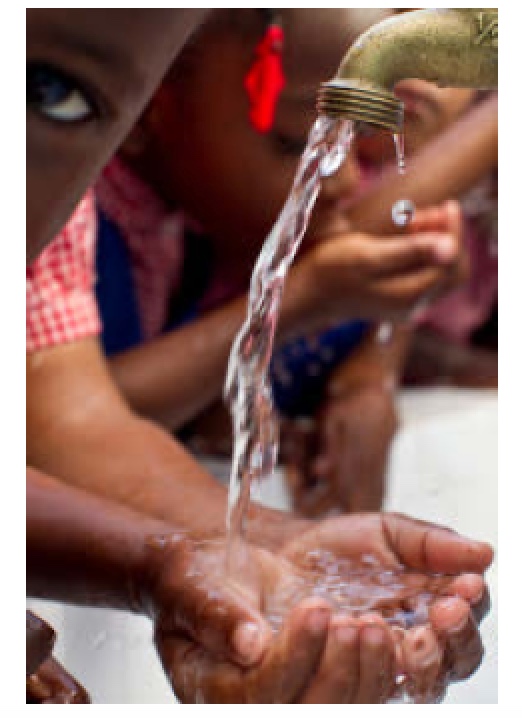Rotary-US AID Bring Liquid Gold to Ghana

Ghana, a country with a population of 28 million on West Africa’s Gold Coast, was once famous for its gold. Today, it’s one of the world’s major suppliers of cocoa and also produces oil and diamonds. But even in a country with all of these precious commodities, it may be that nothing is as valuable, particularly in rural areas, as clean water — liquid gold. Since 2009, Rotary and USAID, the world’s largest government organization to deliver civilian foreign aid to address extreme poverty, have worked together to support lasting, positive change by improving access to clean water and sanitation in developing countries like Ghana.
As Rotary marks World Water Day on 22 March, Rotarians are invited to learn more about the Rotary International-USAID International H2O Collaboration, how it solves seemingly unsolvable problems in Ghana, and how those approaches can be used in other countries.
“We do more than just provide clean water and sanitation. We help bring about lasting change through education and advocacy — showing people what to do with the new resources and ensuring policies are in place to preserve the changes,” says Erica Gwynn, Rotary International’s manager of the RI-USAID partnership.
For 2015-18, the collaboration has committed $4 million each to Ghana, Madagascar, and Uganda. Rotary is providing $2 million of the total per country, with $200,000 for each country needing to be raised by individual Rotarians, clubs, and districts.
Work is underway in Ghana, with 91 communities scheduled to have new wells by 2018, establishing an improved water source, reducing illness, and increasing quality of life for residents. The project in Ghana will also add 122 latrines in schools and health clinics, bringing sanitation facilities to thousands in rural areas. But providing access to clean water and sanitation is only part of the project. Extensive hygiene and sanitation training will be offered in each community, in partnership with local Rotarians and Global Communities, an international nonprofit that is working with USAID to provide local contractors. Rotarians will also work with local and national governments to advocate for improving water and sanitation policies.
As Rotary marks World Water Day on 22 March, Rotarians are invited to learn more about the Rotary International-USAID International H2O Collaboration, how it solves seemingly unsolvable problems in Ghana, and how those approaches can be used in other countries.
“We do more than just provide clean water and sanitation. We help bring about lasting change through education and advocacy — showing people what to do with the new resources and ensuring policies are in place to preserve the changes,” says Erica Gwynn, Rotary International’s manager of the RI-USAID partnership.
For 2015-18, the collaboration has committed $4 million each to Ghana, Madagascar, and Uganda. Rotary is providing $2 million of the total per country, with $200,000 for each country needing to be raised by individual Rotarians, clubs, and districts.
Work is underway in Ghana, with 91 communities scheduled to have new wells by 2018, establishing an improved water source, reducing illness, and increasing quality of life for residents. The project in Ghana will also add 122 latrines in schools and health clinics, bringing sanitation facilities to thousands in rural areas. But providing access to clean water and sanitation is only part of the project. Extensive hygiene and sanitation training will be offered in each community, in partnership with local Rotarians and Global Communities, an international nonprofit that is working with USAID to provide local contractors. Rotarians will also work with local and national governments to advocate for improving water and sanitation policies.